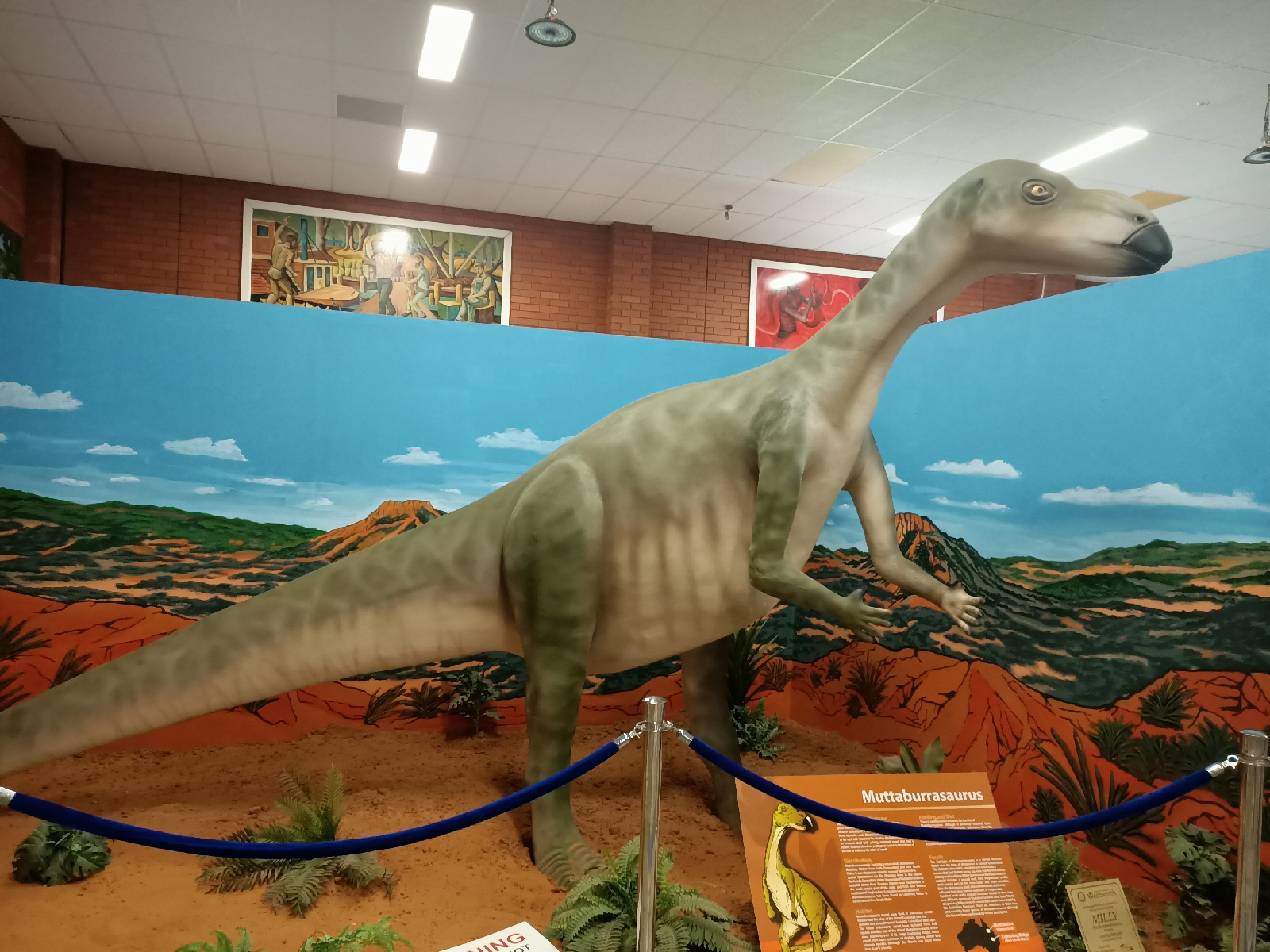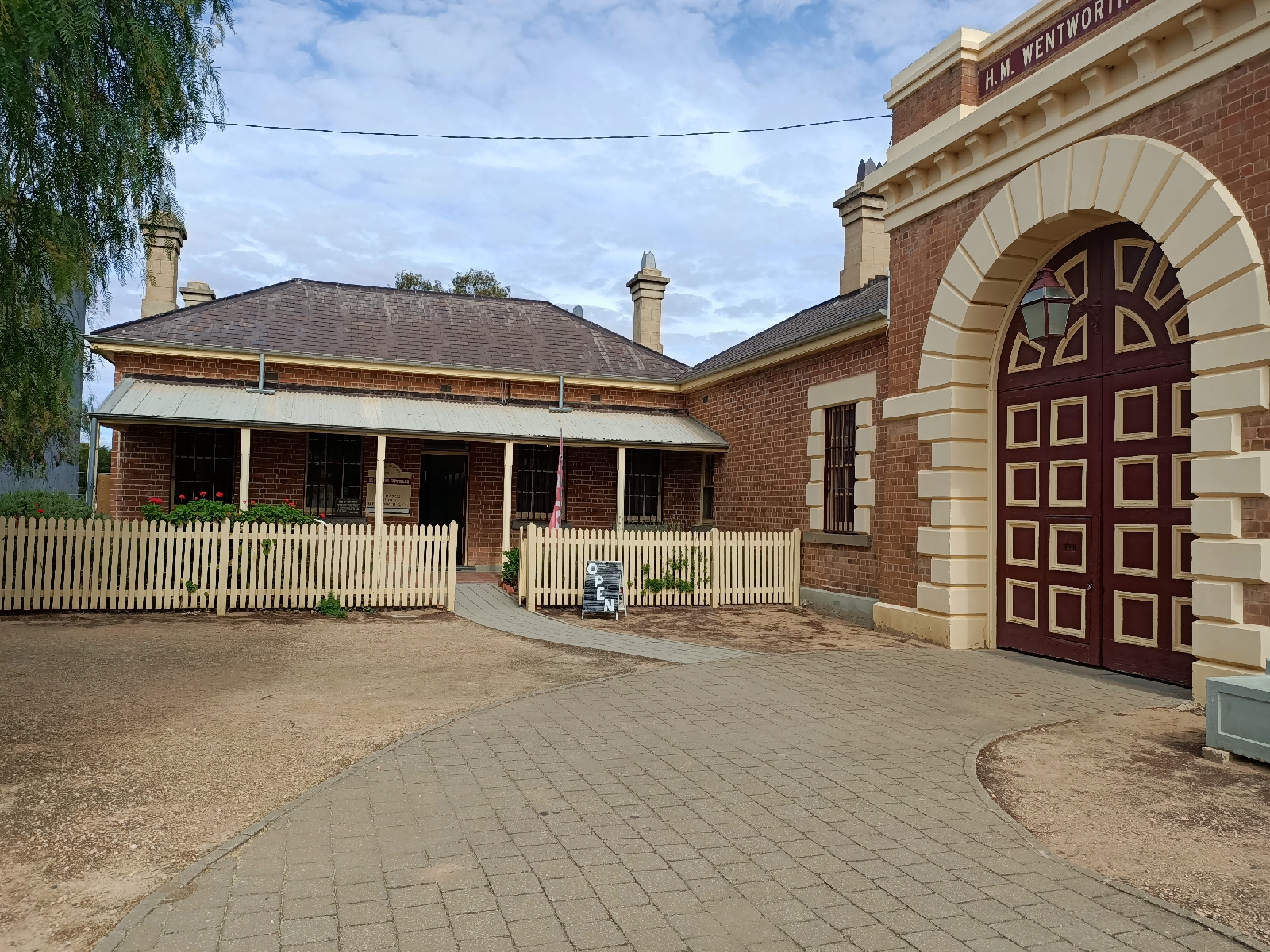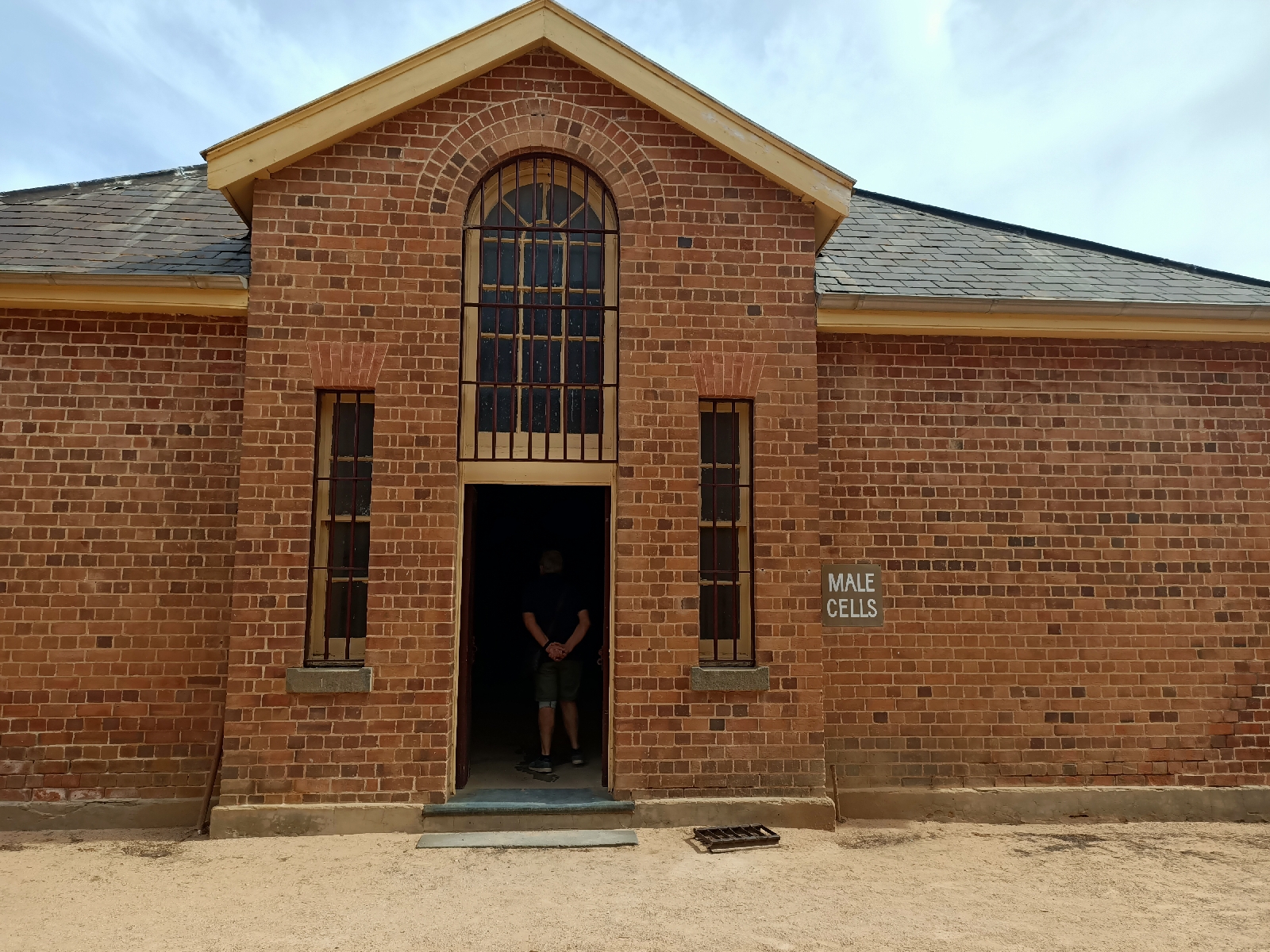We had a full programme yesterday morning, taking in all the sights that we missed the past few days.
First stop, the junction of the Murray and Darling Rivers. The Murray/Darling River Confluence! Now, I have extended my vocabulary range, in that I did not know that the meeting of two rivers was called a confluence. Amazing that one never stops learning.
Anyway, it transpired that we could not walk to the point where the two rivers meet due to flood damage. The path was closed.
But first I need to back track a little, in that we started walking in the opposite direction, but it was the wrong track. We had left the map back in the caravan.
Do I look a little worried in this photograph?
Six months ago this part of Wentworth was well and truly under water. Now the mud has dried and cracked.
When we returned to the car park we realised that the path was in the other direction. However it was firmly closed, due to flood damage.
Under the foot bridge there was a canal and according to the sign, people were undecided about whether it was a man made canal or a natural channel.
Charles Sturt named the two rivers, the Darling River and the Murray River. The traditional owners called the Darling River, Baaka, and the Murray River, Millewah.
Up until this point the Murray River has travelled 1688 km from the Great Dividing Range and the Darling River has travelled 2740 km from Queensland and northern New South Wales. Together they will travel together for another 832 river km until they reach the southern ocean.
The Darling River is a clay based river which gives it a milky appearance and the Murray River has a sand base which gives it a clear appearance. But something must happen after the two rivers come together because the Murray further south always looks very muddy, as if it is flowing upside down.
After all that effort, mainly due to reading a lot, and not walking, we needed coffee badly, so we headed back to town to the newsagent/cafe for a reviving cup of coffee and custard squares, from an award winning bakery, apparently. They were delicious.
We then headed off to the Pioneer Museum, where Piper was allowed to come into the building with us. We so appreciate dog loving places.
Once inside we immediately headed right to look at replicas of the animals that used to roam in the Perry Sandhills, not far away, some 40,000 years ago. And a fearsome lot they were too. Most were similar to animals that were here now, just giant sized. The one at the front was a flat faced kangaroo, then behind it was a giant wombat, and right at the back was a giant goanna. I am not keen on real goannas but they are certainly minuscule compared to that giant.
A normal dinosaur, with a gentle face. Still very big.
The museum has over 3000 artefacts and relics covering the history of Wentworth. I found that it was very well laid out and easy to walk around and view everything. The film about the floods in 1956 was interesting, given the recent floods along the Murray River. The flood water flows down very slowly but people do not know how high it will be until it gets to their section of the river. This happened in 1956 and the water was higher than expected and covered the town of Wentworth. They have very high levies around the town now and this time it escaped being flooded.
This tree stump was an interesting specimen. I will try and write a brief explanation, as it is quite complicated.
A huge River Red Gum was cut down in 1971 and inside it was a cut off Black Box Tree. The gum tree had enveloped the box tree.
The interesting part is that the Black Box Tree had been cut off with a sharp metal axe, at a time when first nations people used stone axes and only cut off bark for canoes. They also did not cut trees down.
. People have worked out that the River Red Gum was 200 years old, which put the cutting of the Black Box Tree at around 1770. The first European person, Capt Charles Sturt, came through here in 1830, so who was the person that cut down the Black Box Tree?
The River Red Gum Tree with the Black Box Tree inside it.
Who remembers the old telephone exchange? We are so used to our mobile phones these days, with instant access to most places in the world. So we forget that once we had to dial the telephone exchange in order to get the operator to connect us with the person we wanted to ring.
I remember when straight through dialing to another country came into existence sometime in the late 70s. So modern!
Old Wentworth Gaol. I did not like this place at all, even though we were allowed to bring Piper into the building.
The prison cells were in this building. So scary. They run ghost tours during the evening for people that are interested in such things.
The side buildings in the prison grounds were converted and used as the local school during the early 1960s. I think they planted the pepper tree which was the only green thing in the prison grounds.
Our last visit was to the Perry Sandhills, just north of Wentworth. According to geologists, the Perry Sandshills originated after an Ice Age, 40,000 years ago. They were then formed by wind erosion over thousands of years, and changed colour to red. Skeletal remains of giant mega fauna have been found in the sand dunes.
I think it was the tree in the photograph below, but there was another one that looked similar not far away. It is known as the God Tree and is about 500 years old. Most of the trunk is buried in the sand dune.
Walter looking lonely, and a little daunted, on top of one of the sand dunes. Piper just wants me to hurry up and join them.
This morning we reluctantly left Wentworth, and joined the large number of trucks and caravans on the Sturt Highway. After three weeks of quiet roads it was a bit of a shock.
We are now in a rustic camping ground, called River Palms Caravan Park, at Blanchetown. Mind you I have not seen the palms yet, nor any trees in fact. But the toilet block is new (on the right) and there are two cabins on wheels, one is behind the bonnet of the car.
Interestingly there are about sixty shacks between the camping ground and river, some of them quite flash.
I managed to take a photo of the Murray River at dusk. There was still plenty of water around, luckily the shacks and camping ground were on the high banks of the river. The Blanchetown Caravan Park was inundated with flood water. It is still closed.
Tomorrow we join the trucks and caravans again and head home. Not far to go now, so hopefully we will be there by lunchtime.
It has been a lovely trip in our new (to us) caravan and car. We are very happy with both car and and caravan, and once we get a few little problems fixed with the caravan we will be looking forward to getting out again.






















No comments:
Post a Comment